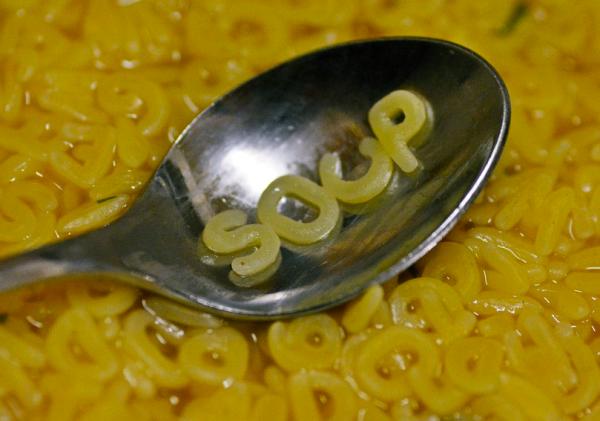Let's start with a little rant. A June editorial in Nature tells us to "Embrace the WHO’s new naming system for coronavirus variants." You know, the one where Greek letters are used in place of the location where the variant first "showed up." After all, we don't want to stigmatize anyone in the UK, Brazil, South Africa, or, New York, or India by attaching their names to a nasty virus.
That's all well and good, but the result has largely been stigmatization and confusion, since any mention of delta, the most concerning variant at the moment, is invariably followed by "which originated in India." Someone wanna tell me what this has accomplished?
And what about stigmatizing the Greeks? Did anyone bother to ask them how they felt having every variant named after their alphabet? Just asking.
All Greek to Me
Just in case you're not up on your Greek alphabet, it's alpha, beta, gamma, delta, epsilon, zeta, eta, theta, iota, kappa, lambda, followed by 13 more.
What about the six variants between delta and lambda? Well, the next one is epsilon. According to Wikipedia:
"Epsilon variant or lineage B.1.429, also known as CAL.20C is one of the variants of SARS-CoV-2, the virus that causes COVID-19. It was first detected in California, USA in July 2020"
So, epsilon is the old California variant, which apparently hasn't caused enough trouble to warrant press coverage. The others, (beginning with zeta) are from Brazil (Rio), England, the Philippines, New York City, and India.
Delta is a Good Airline But a Bad Variant
Delta is the "variant du jour" and it's not something you want to catch. It has been called "COVID-19 on steroids" because it is more contagious than the other variants and is now responsible for more than half of all US cases and 80 percent of new cases in parts of the Midwest, where vaccination rates are low.
Even in states where vaccination rates are high (Maryland at 56.7 percent, seventh-best), we see news like this: (emphasis added)
"In Maryland, every person [130] who died of Covid-19 in June was unvaccinated.
Without dwelling on the obvious, you have to be out of your mind not to get vaccinated, given that more contagious and possibly more dangerous variants are here. And it is all but certain that more are on the way.
Lambda is no Lamb
It was essentially predetermined that progressively more contagious variants would "take over" from the older, less contagious species. This is how viruses work. They "see" humans (and other hosts) as giant laboratories in which they constantly evolve until a new and "better" variant or strain arises. This is just what we're seeing now with the delta (originally from India!) variant.
Viruses are competitive little bastards. They keep fighting it out until a winner climbs to the top of the hill. Despite all the "effort" put forth by delta to ascend to its lofty position, its replacement is likely, if not guaranteed. Lambda's advantage is a mutation in the spike proteins which enhances its binding to the ACE-2 receptor, which is largely responsible for the onset of the infection.
It's too early to say, but the lamba variant, which first took hold in Peru, may have delta in its sights. Its prevalence in Peru soared from 21 percent in January 2021 to 97%(!) percent in April.
Lambda is currently considered to be a "variant of interest" by the WHO (rather than the more alarming "variant of concern," but given its properties, it would not be surprising if it gets "promoted."
Alphabet Soup for You!
Whether lambda takes over from delta is unclear, but in the long run, this probably doesn't matter (1). What is clear is that we are going to run out of Greek letters at some point and that one of them is probably going to get you. If you let it. Currently, the mRNA vaccines seem to be doing a very good job in holding up against the onslaught or variants. It would be wise to take advantage.
NOTE:
(1) What does matter is whether variants start popping up that are not susceptible to the current vaccines. Then we have a mess on our hands. (This would require tweaking the composition of the mRNA, which is easy. But getting a new vaccine into the hundreds of millions of people who already have been vaccinated is not trivial.)




